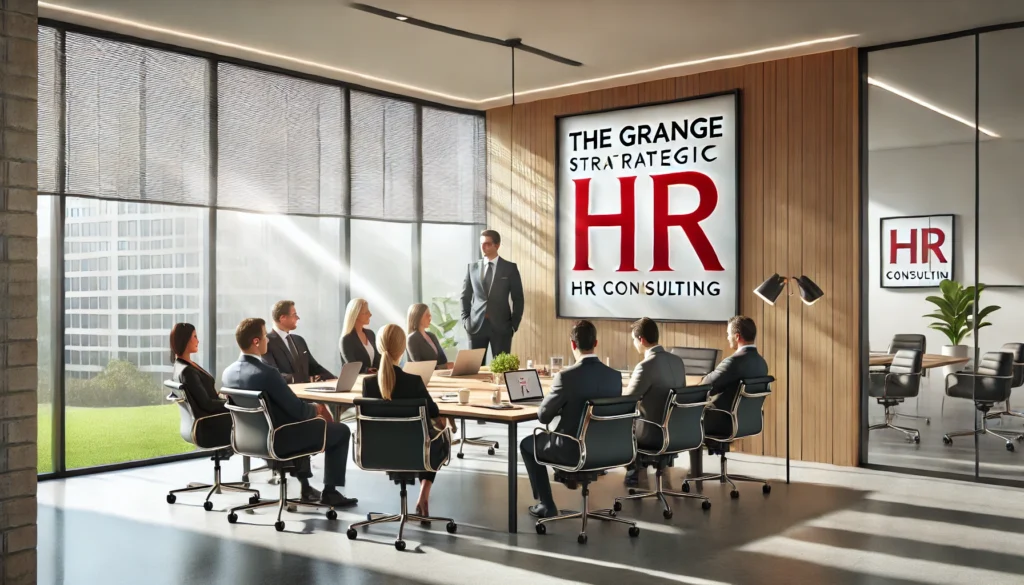
“I like the way your predecessor did parties, I like how you do HR.”
One of the greatest compliments I’ve ever received was when my COO said this to me after my predecessor visited her office. It was just over a year after I started working for the company and, I have to admit, I was a little insecure about what my COO thought of the dramatically different way I ran the company’s HR department. The statement came with a lot of relief and, more importantly, validation for what many people would see as a very unorthodox style of Human Resources.
One of my favorite quotes, from the TV show The Office, is a quote by Michael Scott, “If I had a gun with two bullets and was in a room with Bin Laden, Hitler, and Toby, I’d shoot Toby twice.” It exemplifies the way Human Resources is largely perceived in the United States. HR is perceived as a “rent taker” (somebody who makes money from the process, as opposed to somebody that generates money by creating value). I was reminded at several companies I worked for, some very supportive of employees and some not, that the HR function was a cost center. I was told that it was a necessary and important cost center, but still a cost center. I was reminded that HR didn’t generate any revenue, create a product, or improve the intellectual property of the company.
“The true role of Human Resources, however, has very little to do with the notion of providing customer service to either employees or management.”
Shockingly a lot of HR professionals see the function the same way. In their minds, the department provides a buffer between itself and ever increasingly complex regulation that can damage the company seemingly without warning.
This was exemplified when I saw a Vice President of HR talking to a group of employees and reassuringly telling them that they could count on the HR department because “We see you as our customers. Just like the company has customers, you’re our customers. We’re here to help you.” The sentiment is well meaning but, like most broad, generalized statements, it betrays the underlying assumptions associated with it.
In this case, the underlying assumption is that “we perform transactional work that makes your work easier or supports you as an individual.” Stop and think about that for a moment. The HR department takes a burden off of you, so that you can perform your work. We get you benefits, perks, and ensure that the company complies with laws that protect you from the company. We process paperwork like payroll and help you resolve issues when they arise. A companion statement to leadership is that we’ll protect you from your employees and take care of all of the paperwork associated with them.
With that kind of mentality, it’s easy to understand why senior leadership at the C-suite level doesn’t feel the need to involve Human Resources in large scale executive, strategic, decision making. It’s easy to see why Fast Company covered its magazine with the headline “Why We Hate HR” above a drawing of a small girl cutting up her dollies. The message is visceral, “you’re strange, threatening, and don’t provide anything substantial.”
The true role of Human Resources, however, has very little to do with the notion of providing customer service to either employees or management. HR does provide services to employees and managers alike, but that isn’t its core function. Does your accountant just pay your bills and count where your money went? Of course not. While accounting does pay the bills, tracks money, and files taxes, it also helps you find efficiencies in your operations, organizes resources for growth, strategically recommends ways for the company to grow, and provides a window into what the future may hold for the company. If accounting didn’t do all of those things, you wouldn’t want them in senior leadership because they wouldn’t provide any value outside of reporting.
HR is no different. HR is the art of management. It should provide executive leadership with insight into the company’s greatest asset and largest cost, human capital. It should provide forecasts and explanations for why employees produce what they produce, should develop leadership to better facilitate productivity and efficiency, and train leadership at all levels on how to maximize the company’s largest asset.
It is becoming increasingly clear that companies who understand the strategic role of HR outperform those who do not. It is increasingly obvious that culture is king, the org chart is queen, and becoming a vision driven company are the underpinnings of success in the modern economy.
Ironically, that is the role of HR in modern American business. Yes, parties are a part of that (one that I probably need to be better at), but they aren’t the central function of HR.
